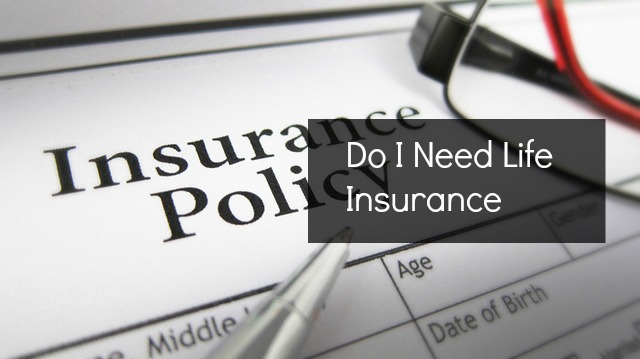 We have a special guest post by insurance expert Constance Craig. Read below to get the information you need to know about life insurance.
What is life insurance?
We have a special guest post by insurance expert Constance Craig. Read below to get the information you need to know about life insurance.
What is life insurance?
In a nutshell, life insurance is an agreement between the insurance company and the client that allows for funds to be paid out in the event of death as long as the premiums have been paid as agreed. Of course, life insurance is not cookie-cutter, therefore there are many other benefits that can run alongside the death benefit. They can include riders such as child(ren) or spouse death benefits, disability & critical illness as well as cash value.
What is the benefit of life insurance? Why do I need it?
There are many benefits to life insurance. Not everyone needs it. It depends of the needs and goals of the client or family. Since life insurance provides for a death benefit that exceeds the premiums paid, it in essence allows the family to not sustain any unexpected hardship due to the costs of final affairs. In addition to the funds provided for final affairs, it can also be used to replace the loss of income of the breadwinner who has now passed away. It can be set up to provide for the future finances that the client or loved one would have provided had they lived. For example, the death benefits can be used to put aside college or retirement money for the child(ren) and surviving spouse. Now, if you have saved consistently, you are considered “self-insured” and may not need life insurance. But keep in mind, if the savings is not significant ie. 10 times your annual salary, using savings for final expense could create a hardship down the line.
How do I get life insurance?
To obtain life insurance, you can contact your Human Resources Department to discover what group life benefits are offered through your employer. Group insurance is meant to be a “supplement” to life insurance that you own outside of work. Particularly with group insurance, the employer is the policy owner and the employee (and family) are just the insured certificate holders. This type of insurance is not always suitable for those who want to include in their insurance the payment of
drugs for the ED treatment. The employer could decide to no longer offer this “benefit” and therefore leave your family uninsured. On the flip side, the group insurance is very affordable because the premiums are reflective of the number of insured in the employer group.
You can contact your insurance agent or broker to obtain coverage outside of your employer. This is coverage that can be customized to reflect your current and future needs and goals. You may be able to speak with the agent regarding your entire financial situation and obtain assistance and resources for retirement, college and estate planning.
How much does it cost?
Price varies depending on your health, age, tobacco status, and product type. Additionally, each insurance company sets it’s own rates in compliance with state regulations. Generally speaking female rates are cheaper than males due to life expectancy. Healthier clients’ rates are cheaper than smokers or those with past or current health issues. Children’s rates are cheaper than adults.
How do I figure out how much to get?
There are many ways to figure out how much coverage to get. Final expense costs range from $7,500- 10,000 for standard funeral to including cremation services. Most final expense policy limits coverage from $1,000- $25,000 and are usually from the age of 50 and older. Agents also calculate replacement of income as 10 times your annual salary. They can include coverage for debt/mortgage payoff and monthly living expenses. You can even include amounts to pay for college or retirement if a breadwinner would like for surviving family members to still have these things in the event of his/her death.
I have insurance for my business, does that cover me?
If you have insurance for your business, it more than likely covers liability in the event that your business injures someone or damages someone’s property. It also can cover your business property and funds. However, it does not usually cover your loss of life. You would need to purchase a keyman life insurance policy to pay out funds to your business, partners or family in the event of your death.
Can I combine my life insurance with other types of insurance?
Depending on the insurance company you may be able to get discounts on your P&C (property and casualty) insurance policies, if you also get life insurance with the company. Again, you may be able to add riders to your life insurance policy that offer additional benefits than just death benefits.
I heard I can use my insurance policy like investing, is this true?
A life insurance policy is not an investment. It is not supposed to provide a “windfall” but to restore the loss of income of a breadwinner and/or provide funds for final expense. An investment can provide for a return of your investment and capital gains. Capital gains are taxable depending on the retirement plan you select. In an investment you stand the risk of also losing some of your investment, but if you plan to invest for a period beyond five years, you have the opportunity to regain some or all of your losses. There are policies that are invested in the market that provide some protections against losses. You will want to connect with your agent to discuss those options and if it will meet your goals.
What are your best tips for someone considering purchasing life insurance?
The best option for anyone who has interest in life insurance is to speak with an agent who you can trust. Someone with experience in the field and who has resources to help you not only with your insurance needs, but your financial goals.
Bio
I am an Insurance Broker. I am fully licensed and contracted with a number of reputable insurance providers. I am able to find you the best company with the product that will suit your needs. I represent State Farm, United of Omaha, United American and National Guardian Life. If I am unable to assist you, I can refer you to one of my trusted colleagues at Baltimore Life, Primerica, TransAmerica or Lincoln Heritage to help. I am licensed in Md, Pa and Ga. I am licensed in the areas of auto, home, life, health, disability, critical illness, business and annuities. I can be reached directly at
410-818-9975 or
constancencraig@gmail.com.
Photo credit:
Pictures of Money
 We have a special guest post by insurance expert Constance Craig. Read below to get the information you need to know about life insurance.
What is life insurance?
In a nutshell, life insurance is an agreement between the insurance company and the client that allows for funds to be paid out in the event of death as long as the premiums have been paid as agreed. Of course, life insurance is not cookie-cutter, therefore there are many other benefits that can run alongside the death benefit. They can include riders such as child(ren) or spouse death benefits, disability & critical illness as well as cash value.
What is the benefit of life insurance? Why do I need it?
There are many benefits to life insurance. Not everyone needs it. It depends of the needs and goals of the client or family. Since life insurance provides for a death benefit that exceeds the premiums paid, it in essence allows the family to not sustain any unexpected hardship due to the costs of final affairs. In addition to the funds provided for final affairs, it can also be used to replace the loss of income of the breadwinner who has now passed away. It can be set up to provide for the future finances that the client or loved one would have provided had they lived. For example, the death benefits can be used to put aside college or retirement money for the child(ren) and surviving spouse. Now, if you have saved consistently, you are considered “self-insured” and may not need life insurance. But keep in mind, if the savings is not significant ie. 10 times your annual salary, using savings for final expense could create a hardship down the line.
How do I get life insurance?
To obtain life insurance, you can contact your Human Resources Department to discover what group life benefits are offered through your employer. Group insurance is meant to be a “supplement” to life insurance that you own outside of work. Particularly with group insurance, the employer is the policy owner and the employee (and family) are just the insured certificate holders. This type of insurance is not always suitable for those who want to include in their insurance the payment of drugs for the ED treatment. The employer could decide to no longer offer this “benefit” and therefore leave your family uninsured. On the flip side, the group insurance is very affordable because the premiums are reflective of the number of insured in the employer group.
You can contact your insurance agent or broker to obtain coverage outside of your employer. This is coverage that can be customized to reflect your current and future needs and goals. You may be able to speak with the agent regarding your entire financial situation and obtain assistance and resources for retirement, college and estate planning.
How much does it cost?
Price varies depending on your health, age, tobacco status, and product type. Additionally, each insurance company sets it’s own rates in compliance with state regulations. Generally speaking female rates are cheaper than males due to life expectancy. Healthier clients’ rates are cheaper than smokers or those with past or current health issues. Children’s rates are cheaper than adults.
How do I figure out how much to get?
There are many ways to figure out how much coverage to get. Final expense costs range from $7,500- 10,000 for standard funeral to including cremation services. Most final expense policy limits coverage from $1,000- $25,000 and are usually from the age of 50 and older. Agents also calculate replacement of income as 10 times your annual salary. They can include coverage for debt/mortgage payoff and monthly living expenses. You can even include amounts to pay for college or retirement if a breadwinner would like for surviving family members to still have these things in the event of his/her death.
I have insurance for my business, does that cover me?
If you have insurance for your business, it more than likely covers liability in the event that your business injures someone or damages someone’s property. It also can cover your business property and funds. However, it does not usually cover your loss of life. You would need to purchase a keyman life insurance policy to pay out funds to your business, partners or family in the event of your death.
Can I combine my life insurance with other types of insurance?
Depending on the insurance company you may be able to get discounts on your P&C (property and casualty) insurance policies, if you also get life insurance with the company. Again, you may be able to add riders to your life insurance policy that offer additional benefits than just death benefits.
I heard I can use my insurance policy like investing, is this true?
A life insurance policy is not an investment. It is not supposed to provide a “windfall” but to restore the loss of income of a breadwinner and/or provide funds for final expense. An investment can provide for a return of your investment and capital gains. Capital gains are taxable depending on the retirement plan you select. In an investment you stand the risk of also losing some of your investment, but if you plan to invest for a period beyond five years, you have the opportunity to regain some or all of your losses. There are policies that are invested in the market that provide some protections against losses. You will want to connect with your agent to discuss those options and if it will meet your goals.
What are your best tips for someone considering purchasing life insurance?
The best option for anyone who has interest in life insurance is to speak with an agent who you can trust. Someone with experience in the field and who has resources to help you not only with your insurance needs, but your financial goals.
Bio
I am an Insurance Broker. I am fully licensed and contracted with a number of reputable insurance providers. I am able to find you the best company with the product that will suit your needs. I represent State Farm, United of Omaha, United American and National Guardian Life. If I am unable to assist you, I can refer you to one of my trusted colleagues at Baltimore Life, Primerica, TransAmerica or Lincoln Heritage to help. I am licensed in Md, Pa and Ga. I am licensed in the areas of auto, home, life, health, disability, critical illness, business and annuities. I can be reached directly at 410-818-9975 or constancencraig@gmail.com.
Photo credit: Pictures of Money
We have a special guest post by insurance expert Constance Craig. Read below to get the information you need to know about life insurance.
What is life insurance?
In a nutshell, life insurance is an agreement between the insurance company and the client that allows for funds to be paid out in the event of death as long as the premiums have been paid as agreed. Of course, life insurance is not cookie-cutter, therefore there are many other benefits that can run alongside the death benefit. They can include riders such as child(ren) or spouse death benefits, disability & critical illness as well as cash value.
What is the benefit of life insurance? Why do I need it?
There are many benefits to life insurance. Not everyone needs it. It depends of the needs and goals of the client or family. Since life insurance provides for a death benefit that exceeds the premiums paid, it in essence allows the family to not sustain any unexpected hardship due to the costs of final affairs. In addition to the funds provided for final affairs, it can also be used to replace the loss of income of the breadwinner who has now passed away. It can be set up to provide for the future finances that the client or loved one would have provided had they lived. For example, the death benefits can be used to put aside college or retirement money for the child(ren) and surviving spouse. Now, if you have saved consistently, you are considered “self-insured” and may not need life insurance. But keep in mind, if the savings is not significant ie. 10 times your annual salary, using savings for final expense could create a hardship down the line.
How do I get life insurance?
To obtain life insurance, you can contact your Human Resources Department to discover what group life benefits are offered through your employer. Group insurance is meant to be a “supplement” to life insurance that you own outside of work. Particularly with group insurance, the employer is the policy owner and the employee (and family) are just the insured certificate holders. This type of insurance is not always suitable for those who want to include in their insurance the payment of drugs for the ED treatment. The employer could decide to no longer offer this “benefit” and therefore leave your family uninsured. On the flip side, the group insurance is very affordable because the premiums are reflective of the number of insured in the employer group.
You can contact your insurance agent or broker to obtain coverage outside of your employer. This is coverage that can be customized to reflect your current and future needs and goals. You may be able to speak with the agent regarding your entire financial situation and obtain assistance and resources for retirement, college and estate planning.
How much does it cost?
Price varies depending on your health, age, tobacco status, and product type. Additionally, each insurance company sets it’s own rates in compliance with state regulations. Generally speaking female rates are cheaper than males due to life expectancy. Healthier clients’ rates are cheaper than smokers or those with past or current health issues. Children’s rates are cheaper than adults.
How do I figure out how much to get?
There are many ways to figure out how much coverage to get. Final expense costs range from $7,500- 10,000 for standard funeral to including cremation services. Most final expense policy limits coverage from $1,000- $25,000 and are usually from the age of 50 and older. Agents also calculate replacement of income as 10 times your annual salary. They can include coverage for debt/mortgage payoff and monthly living expenses. You can even include amounts to pay for college or retirement if a breadwinner would like for surviving family members to still have these things in the event of his/her death.
I have insurance for my business, does that cover me?
If you have insurance for your business, it more than likely covers liability in the event that your business injures someone or damages someone’s property. It also can cover your business property and funds. However, it does not usually cover your loss of life. You would need to purchase a keyman life insurance policy to pay out funds to your business, partners or family in the event of your death.
Can I combine my life insurance with other types of insurance?
Depending on the insurance company you may be able to get discounts on your P&C (property and casualty) insurance policies, if you also get life insurance with the company. Again, you may be able to add riders to your life insurance policy that offer additional benefits than just death benefits.
I heard I can use my insurance policy like investing, is this true?
A life insurance policy is not an investment. It is not supposed to provide a “windfall” but to restore the loss of income of a breadwinner and/or provide funds for final expense. An investment can provide for a return of your investment and capital gains. Capital gains are taxable depending on the retirement plan you select. In an investment you stand the risk of also losing some of your investment, but if you plan to invest for a period beyond five years, you have the opportunity to regain some or all of your losses. There are policies that are invested in the market that provide some protections against losses. You will want to connect with your agent to discuss those options and if it will meet your goals.
What are your best tips for someone considering purchasing life insurance?
The best option for anyone who has interest in life insurance is to speak with an agent who you can trust. Someone with experience in the field and who has resources to help you not only with your insurance needs, but your financial goals.
Bio
I am an Insurance Broker. I am fully licensed and contracted with a number of reputable insurance providers. I am able to find you the best company with the product that will suit your needs. I represent State Farm, United of Omaha, United American and National Guardian Life. If I am unable to assist you, I can refer you to one of my trusted colleagues at Baltimore Life, Primerica, TransAmerica or Lincoln Heritage to help. I am licensed in Md, Pa and Ga. I am licensed in the areas of auto, home, life, health, disability, critical illness, business and annuities. I can be reached directly at 410-818-9975 or constancencraig@gmail.com.
Photo credit: Pictures of Money 
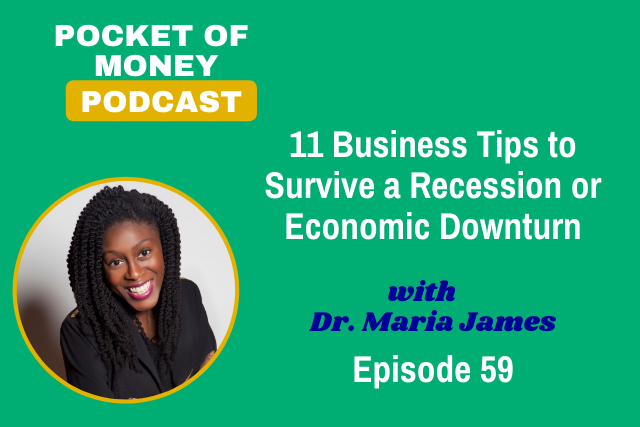
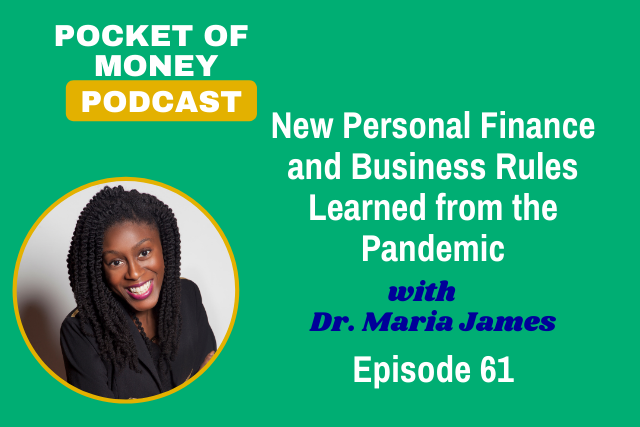
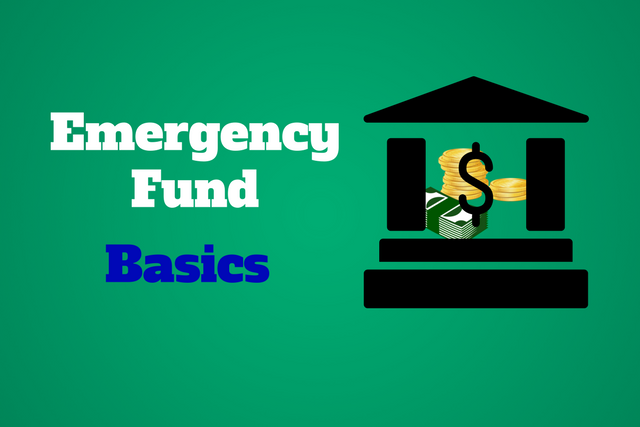

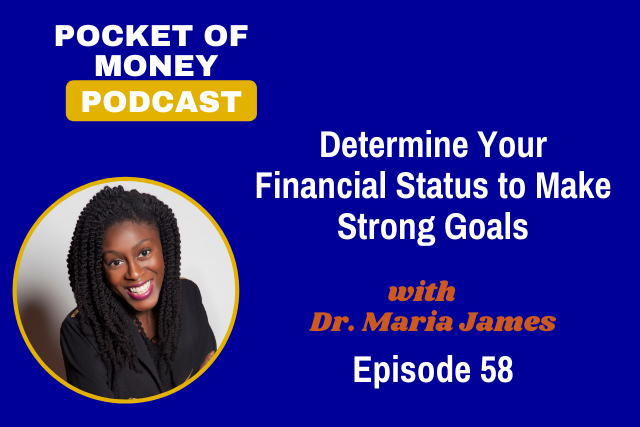
This is a very informative blog post because it addresses the very basics of life insurance. Most blog articles just assume the readers have some life experience when in reality many do not . Purchasing life insurance can be a very confusing subject for many people and it can end up being so intimidating that the average consumer does not take the first step in purchasing the life insurance that they really need to protect their family members. Good job Dr. James!
Hi Maria,
Overall nice piece on the basic need for life insurance. I like that you’ve included a calculator. Many folks are surprised at how fast the numbers add up to a relatively large amount. Remember that term life insurance is by far the least costly alternative. I would say that one generally should never look at life insurance as a pure investment. There are specialty exceptions to this rule, but most consumers would not access those products anyway.
I would highly recommend that your readers for objective term life quotes on the web. There are many. I own a site, there’s NerdWallet, Insuranceblogbychris.com and others as well. Independent brokers are vital in the process, so don’t be afraid to call one, epsecially if you have medical issues. You’ll need some special TLC during the application process.
Thanks,
Chris Acker, CLU, ChFC
http://myfasttermquotes.com
It was really amazing how you explained that one of the main purposes of a life insurance policy was to help the family avoid suffering from financial hardships in case a loved one passes away. That’s the reason why I wanted to have a life insurance policy. It’s not like I’m planning to pass away anytime soon, it’s just that my job can be quite risky and anything can happen anytime. There’s nothing wrong with being prepared. Thank you for sharing. This article proved that my reasoning was correct.